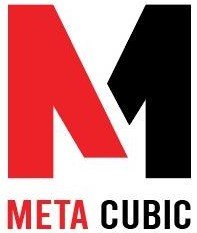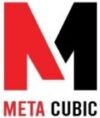Website SEO checklist Boost your rankings today
In today’s digital landscape, having a strong online presence is crucial for businesses and individuals alike. One of the key factors in achieving visibility and attracting organic traffic to your website is search engine optimization (SEO). By optimizing your website according to best practices, you can significantly improve your rankings in search engine results pages (SERPs) and drive more targeted visitors to your site. In this article, we’ll provide you with a comprehensive website SEO checklist that you can implement to boost your rankings and increase your online visibility.
Introduction
In this section, we will discuss the importance of SEO for website rankings and provide an overview of the website SEO checklist that will be covered in the article.
Search engines play a vital role in directing traffic to websites. When users search for information, products, or services online, search engines like Google aim to deliver the most relevant and useful results. Websites that are optimized for search engines have a higher chance of appearing in the top positions of SERPs, resulting in increased visibility and potential organic traffic.
To achieve optimal SEO results, it’s essential to follow a structured approach. The website SEO checklist outlined in this article covers various aspects of SEO, including technical optimization, on-page optimization, off-page optimization, user experience, mobile optimization, local SEO, and analytics tracking. By implementing these strategies, you can enhance your website’s visibility, attract more qualified visitors, and ultimately boost your rankings in search engine results.
Technical SEO

Technical SEO focuses on optimizing the technical aspects of your website to improve its crawl ability, accessibility, and overall performance. By ensuring that your website is technically sound, you create a solid foundation for SEO success. The following are key elements to consider when conducting technical SEO:
Ensuring website accessibility and crawlability
Accessibility and crawl ability are fundamental for search engines to index and understand your website’s content. Ensure that search engine bots can easily access and crawl your website by:
- Removing any barriers that may prevent search engines from accessing your site.
- Checking for and fixing any crawl errors, such as broken links and redirects.
- Creating an XML sitemap and submitting it to search engines to help them discover and index your web pages effectively.
- Optimizing your website’s robots.txt file to guide search engine crawlers and control which pages should be indexed.
Optimizing website speed and performance
Website speed and performance have a significant impact on user experience and search engine rankings. To optimize your website’s speed:
- Minimize HTTP requests by reducing the number of elements on each page.
- Enable browser caching to store static resources locally on users’ devices.
- Optimize images by compressing them without sacrificing quality.
- Use a content delivery network (CDN) to deliver website content from servers located closer to your visitors.
Implementing structured data markup
Structured data markup helps search engines better understand the content and context of your web pages. By implementing structured data markup, you can enhance your website’s visibility in SERPs and increase the chances of having rich snippets displayed. Some commonly used structured data formats include Schema.org and JSON-LD.
Managing XML sitemaps and robots.txt file
XML sitemaps provide search engines with a roadmap of your website’s structure and content. Ensure your XML sitemap is up-to-date, includes all relevant pages, and is submitted to search engines. Additionally, review and optimize your robots.txt file to control how search engines crawl and index your site.
On-Page SEO
On-page SEO involves optimizing the content and structure of individual web pages to improve their visibility in search engine results. Effective on-page optimization techniques can help search engines understand the relevance and value of your content. Consider the following on-page SEO strategies:
Conducting keyword research
Before creating content, it’s crucial to conduct thorough keyword research. Identify relevant keywords and phrases that your target audience is likely to search for. Use keyword research tools like Google Keyword Planner, SEMrush, or Moz Keyword Explorer to find keywords with high search volumes and reasonable competition.
Optimizing meta tags and headings
Meta tags, including the title tag and meta description, are important elements for search engines and users. Optimize your meta tags by incorporating relevant keywords, writing compelling descriptions, and ensuring each page has a unique title and description. Additionally, use appropriate heading tags (H1, H2, H3, etc.) to structure your content and signal its hierarchy to search engines.
Creating compelling and relevant content
Content is at the heart of any successful SEO strategy. Develop high-quality, informative, and engaging content that resonates with your target audience. Ensure that your content addresses their needs and provides valuable insights. Incorporate relevant keywords naturally throughout your content, but avoid keyword stuffing, as it can negatively impact your rankings.
Incorporating internal and external linking strategies
Internal and external linking can enhance the credibility and authority of your web pages. Internally linking relevant pages within your website helps search engines understand the relationships between different pages. Additionally, external links to reputable and authoritative sources can signal the quality and relevance of your content. Be mindful of the anchor text used in your links, as it should accurately describe the linked page’s content.
By implementing effective on-page SEO strategies, you can optimize your web pages for search engines while providing value to your audience.






